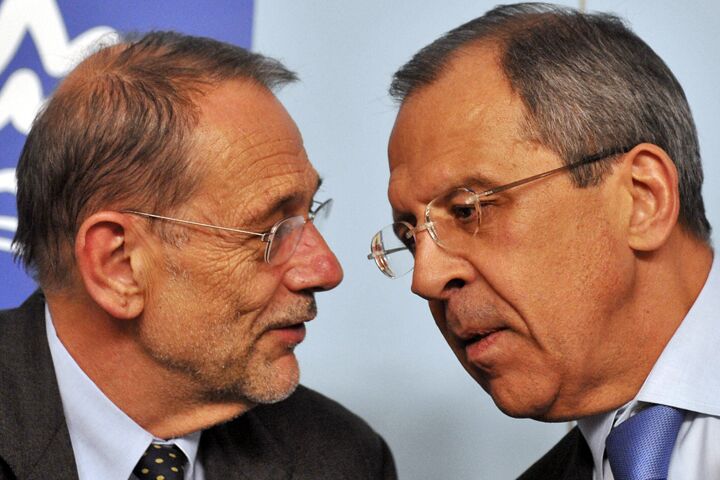
Europe and Russia Press Toward a “Treaty of Strategic Partnership”
The European Union’s current Partnership and Cooperation Agreement with Russia expires June 1—if either party decides to withdraw from the treaty. Otherwise, the agreement will be automatically renewed for another year. Most EU member states, however, are opting for a third option: to negotiate another treaty.
The current Partnership and Cooperation Agreement was first negotiated in 1994 and signed in 1997. The treaty’s original purpose was to craft a trade and political dialogue agreement between Europe and Russia. Basically, Russia got economic support during its post-Soviet depression and Europe got good relations with Russia while the European Union began gobbling up the former Soviet nations of Eastern Europe.
Now that Russia is again a formidable economic and military global player under the leadership of Vladimir Putin, however, this 1997 agreement has become particularly archaic.
That is why an envoy of European Union officials met with Russian Foreign Minister Sergei Lavrov at a General Affairs and External Relations Council in Luxembourg April 29—to consider re-launching talks aimed at negotiating a new, updated EU-Russia treaty. No consensus was reached at this council, however, because EU policy demands a unanimous vote from all member states to enact such a series of negotiations, and Lithuania voted “No.”
Lithuania did not dissent because it is opposed to an EU treaty with Russia, however, but because it thought the EU’s previously agreed negotiating position was too soft and too limited. Lithuania does not want this revised Europe-Russia treaty to be just another trade and political dialogue agreement. The Lithuanians are saying that in order for this treaty to happen, it needs to include a section outlining a common energy policy between the EU and Russia as well as a section outlining a solution to the “frozen conflicts” between the EU and Russia in Moldova and the Caucasus.
As a small EU nation that shares a common border with Russia, Lithuania has had more reason to fear what it views as Russian aggression toward nations like Georgia.
Other EU nations, however, are much keener on pressing forward with a draft of a revised treaty and are notably upset with the Lithuanians for the delay they have caused. EU officials are saying that this postponement should only push treaty negotiations to the EU-Russia summit in Khanty-Mansiysk, Russia, on June 26-27. For this to happen, however, Lithuania has to be convinced to give its support, and that means the entire EU will probably have to beef up its negotiating stance.
Germany, in particular, sees the vital strategic importance of coming up with an agreement with Russia as a solution to the rising tensions over energy, military build-ups, and numerous other issues. “Russia is and remains an indispensable strategic partner if we want to secure peace in Europe,” German Foreign Minister Frank-Walter Steinmeier said on March 4. “The European Union and Russia should, as soon as possible, enter negotiations on a new agreement covering cooperation and partnership.”
A pact between a Germany-led EU and a resurgent Russia would allow them to temporarily lay aside their differences in order to pursue other national interests. Such a pact for such a purpose would be far from unprecedented. At least six times in the last 240 years, Germany has first made a pact with Russia to secure its eastern border before embarking on aggressive foreign policy elsewhere. As American global hegemony falters, and as the threat from the Islamic world rises, look for Germany and the rest of Europe to come to some sort of understanding with Russia so the Continent can aim its political firepower elsewhere.
As Herbert W. Armstrong’s Plain Truth magazine predicted in May 1962, “Once a German-dominated Europe is fully established, Germany will be ready to negotiate and bargain with Russia—and behind the backs of their Western allies if necessary.”
To learn more about what the Trumpet has said in the past about this coming Russo-German pact, read “Dangerous Liaisons.”
